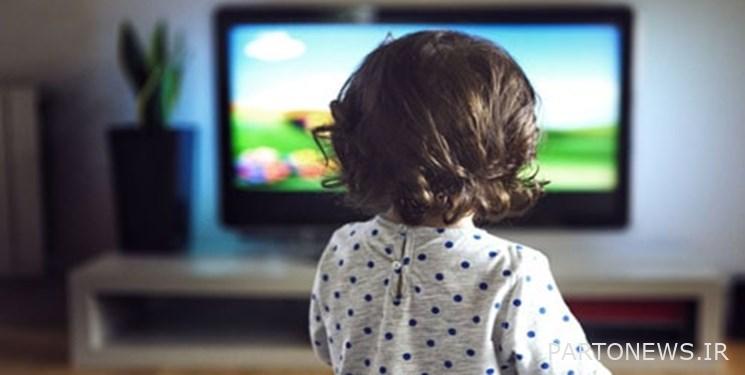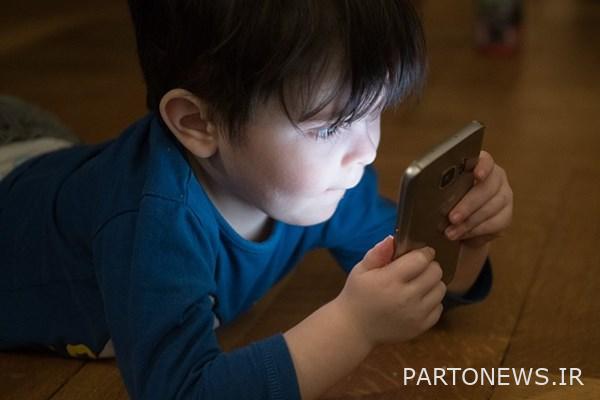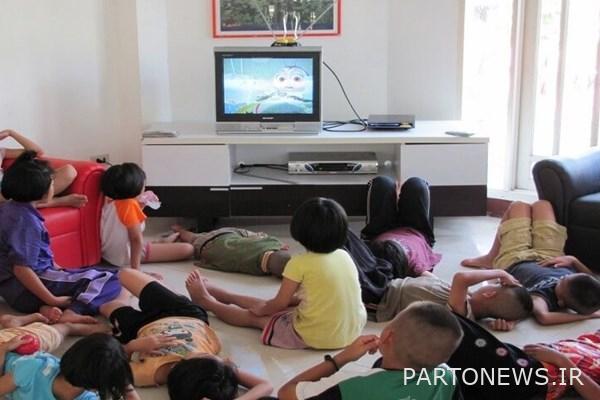What to do with children addicted to mobile phones and TV shows?

Family group: You must have seen that some children have a strange addiction to a mobile game or a TV and cartoon show, and not only do they not feel tired of watching and playing it many times, but they also find it even more desirable. In many cases, this dependence can lead to many harms to a child’s daily routine as well as his or her mental and physical health. Bad habits that are prevented from an early age, the easier they are and the less damage they cause.
In this report, Ms. Zeinab Sabzali, a child and adolescent psychologist and counselor, talks about the problem of children’s addiction to television programs and mobile games.
First of all, do not label our child immediately!
We should not immediately label any case of addiction. In any case, whether I am a mother or an expert, before field surveys it is good to try this label that “addicted”, “my child is depressed”, “aggressive” or any other label in our interactions. Reduce; Even in our minds! Because we mentally label others as doing more harm than good.
And the second case. We have to ask a question. First of all, how old is our child? Sometimes many psychologists emphasize that a child should not watch TV at all from an early age. Or, for example, after the age of three, the time for a child to watch TV is one to two hours, and that is special programs and things that have been approved by experts and parents.
Examine your child’s symptoms carefully
- First of all, it disrupts all other activities in his life to address this. That is, his sleep and food are delayed. That is, if our child was asleep and always got tired at 10 o’clock and wanted to sleep, but now after 10 o’clock he still wants to watch that TV show. Or if he is hungry and we know our child is hungry but the child is postponing food to watch more. Or even when he wants to do other activities, he likes to be with that TV show.
- The second is that it gets bigger and bigger every day. That is, if, for example, he watches the program once today, he likes to watch it twice tomorrow, then the next day, three times, and during the week, it becomes more and more.
- The next thing we need to consider to find out if our child is really addicted to something or not, especially in things like using a tablet and phone and watching a program or a cartoon, etc., is that we get it from Separate the baby. That is, for example, take a phone or tablet or limit the time to watch that program and say that you have the right to see this program only once and there is no second time and only give him the right to choose to specify when he wants to see. If he is grumpy and aggressive, if he breaks down the rest of his activities and does not eat and does not sleep well and has these conditions, then we can worry and think what to do now.
- * Make sure that you never give up a habit and a behavior impulsively and quickly. We need to know that a habit is not created in our child all at once. It is always a habit that develops over time. Equally, it takes time to get rid of that bad habit and replace it with a better one. Always be aware of this gradualness in any field. We are talking about children and their habits and behavior now, but so are we. For example, imagine a person who is overweight. One night he did not gain weight! Well, of course, in losing weight, you have to lose weight gradually and gradually.
what should we do?
Define the limit and size
For this “What should we do?” First of all, we should be in an atmosphere of empathy and conversation with our child and try to give him the right to choose to gradually reduce the time of watching that program. That is, we tell him that you like to see this cartoon and that you have the right to watch it once or twice a day. Choose this time once or twice to see before lunch, before dinner and …. In your family space, control this issue by choosing a child
Stick to your law
Know that if you make a law, you will always abide by it. A law-abiding parent is far more appropriate than a parent who unknowingly feels compassion and unknowingly abandons his or her rules. So always stick to the rules you make.
Find alternative activities
For all the habits we want our child to change, for example, we do not want to be addicted to his phone, TV and programs. An alternative must be prepared for it. That alternative can be different in every family with every culture and with every belief. But the important thing is that it must be attractive for the child. It can be more physical activity in a family or subculture. That means spending some time with our child for the game he or she enjoys. Or anything that the child chooses and is interested in can be. Maybe now the child is watching a cartoon that he is addicted to, for example, assuming the animation of a strawberry girl. This animation has a garden, they cultivate flowers and such activities. Try taking one of these activities and saying that now we want to be a strawberry girl. Go into the garden and plant a seed for yourself. We need to replace these activities to break that habit. In another subculture, this alternative could be subculture, or it could be going to the park, or strengthening fine motor skills such as jumping or fishing, or other fun and engaging motor games that your family approves of and knows about. All of these can replace that behavior and that habit.
Playmate
Communicating and playing with peers in the child, such as going to kindergarten and making friends and playing with them, can reduce a child’s addiction to a program or activities such as playing with a tablet or mobile phone.

The effects of television on children
There have been so many studies on what age children watch TV? If they watch TV from an early age, what are the side effects and problems and what might happen?
In psychology, psychologists have always advised that children under the age of two should not watch television at all. After two years, watch TV for a maximum of two hours a day. Research has shown that those who watch more TV or engage in watching TV at a younger age have problems. For example, if they have bad eating habits, they may have poorer performance at school, and this is because the TV, this magic box, with all its colors and movements, is very enjoyable, especially for children, and it has special effects on their brains. be placed.
For example, I remember writing in our books that children under the age of two who watch TV for a long time can say seven to eight words less than their peers at 17 to 27 months! And at school age, their attention span is much less. As soon as they have poor eating habits, their physical activity decreases, which in turn leads to obesity and overweight. Promotes consumerism among children. That is, they see a food or a means of something and constantly demand it. Because most of the time we leave television unchecked for children, being unelected may make them watch programs that are not at all age-appropriate, and these violent scenes and violent activities can have a negative effect on their brain. If we want our child to see a program that is allowed for one or two hours, we must try to be selective and approved. Too often, seeing scenes that may even have low levels of violence for adults can cause aggression and anxiety in children.
We must also pay attention to certain ages. According to Piaget, children from the age of two seek security against insecurity. That is, they examine in their minds whether the world is a safe place or not, whether the mother of the person is safe or not. And when we give violent content to a child, the child sees the world as an insecure and scary place.

Television and physical effects on children
Now, in addition to the psychological issues we have, if I want to talk about physical health, these quick movements and all these colors cause the child’s eyes to get tired quickly and cause headaches. Children who watch a lot of television at an early age are more likely to develop migraine headaches as adults. The most important thing is that children, by watching a lot of TV, miss the opportunity to do activities and motor exercises, whether delicate or large. This is an opportunity to practice to create harmony between their eyes and hands. They miss the opportunity to practice their communication and verbal skills, the development of their logical thinking, and all that because of the fast-paced images that television has. Even their imagination is diminished. Asking questions and getting answers may be delayed.
End of message /
You can edit this post
Suggest this for the front page
.

